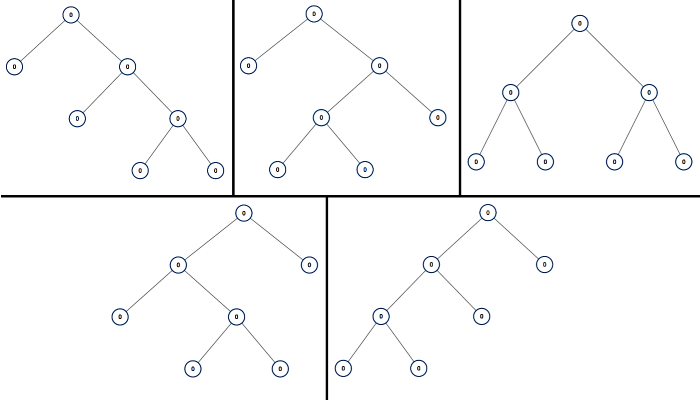Given an integer n, return a list of all possible full binary trees with n nodes. Each node of each tree in the answer must have Node.val == 0.
Each element of the answer is the root node of one possible tree. You may return the final list of trees in any order.
A full binary tree is a binary tree where each node has exactly 0 or 2 children.
Example 1:
Input: n = 7 Output: [[0,0,0,null,null,0,0,null,null,0,0],[0,0,0,null,null,0,0,0,0],[0,0,0,0,0,0,0],[0,0,0,0,0,null,null,null,null,0,0],[0,0,0,0,0,null,null,0,0]]
Example 2:
Input: n = 3 Output: [[0,0,0]]
Constraints:
1 <= n <= 20
Companies: Adobe, Amazon, Google
Related Topics:
Dynamic Programming, Tree, Recursion, Memoization, Binary Tree
// OJ: https://leetcode.com/problems/all-possible-full-binary-trees/
// Author: github.com/lzl124631x
// Time: O(2^(N/2))
// Space: O(N * 2^N)
class Solution {
unordered_map<int, vector<TreeNode*>> m;
public:
vector<TreeNode*> allPossibleFBT(int n) {
if (n % 2 == 0) return {};
if (n == 1) return { new TreeNode() };
if (m.count(n)) return m[n];
vector<TreeNode*> ans;
for (int i = 1; i < n; i += 2) {
auto left = allPossibleFBT(i);
auto right = allPossibleFBT(n - i - 1);
for (auto L : left) {
for (auto R : right) {
auto root = new TreeNode(0, L, R);
ans.push_back(root);
}
}
}
return m[n] = ans;
}
};